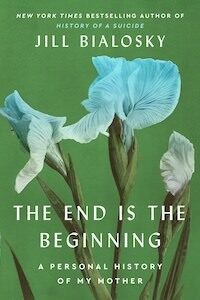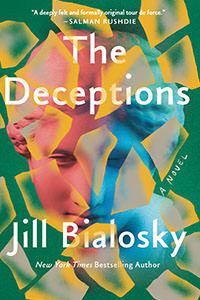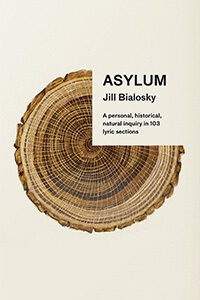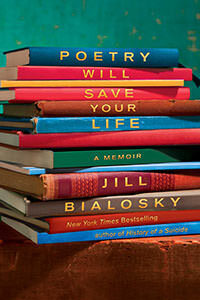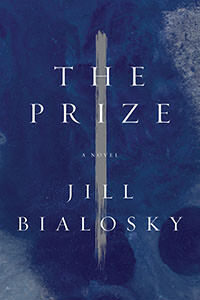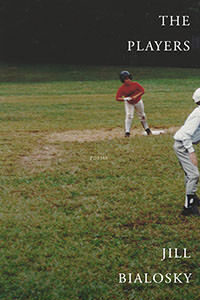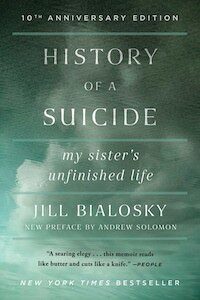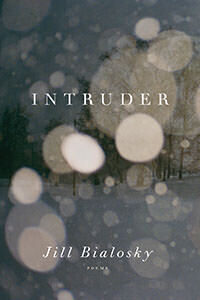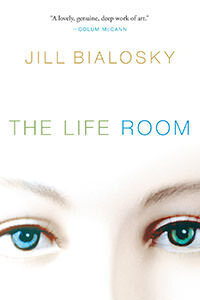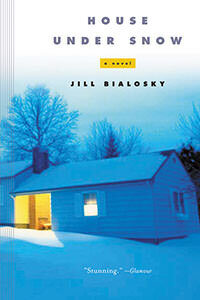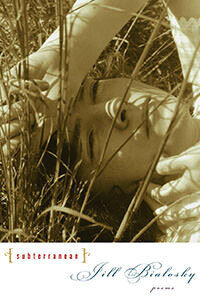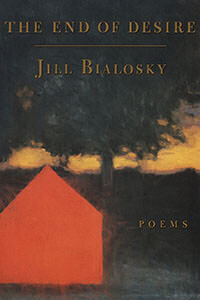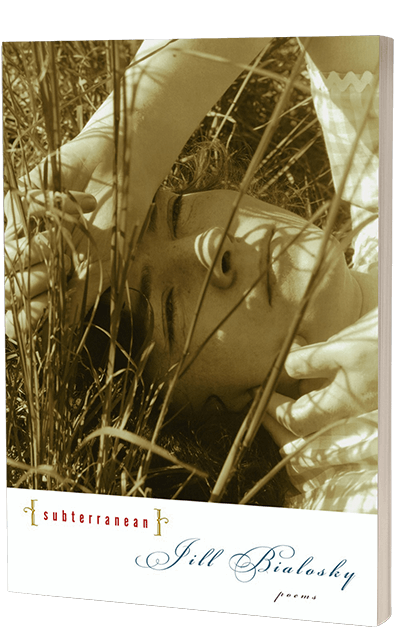“Jill Bialosky’s second book of poems, Subterranean, is an advance in psychic depth and expressive eloquence beyond her distinguished The End of Desire. Her new work fully establishes her voice: poignant, perilous, overwhelmingly aware of the extent to which our lives, inner and outer, are deflected by contingency, and by drives of love and death that govern us.”
— Harold Bloom
Subterranean
Finalist for the James Laughlin Prize from the Academy of American Poets.
Jill Bialosky follows her acclaimed debut collection, The End of Desire, with this powerful sequence of poems that probes the subterranean depths of eros. Gerald Stern has called Bialosky “the poet of the secret garden, the place, at once, of grace and sadness,” and here she enters that garden again, blending the classical with the contemporary in bold considerations of desire, fertility, virginity, and childbirth. Written against the idealizations of romantic love and motherhood, she tells of the loss of one child and the birth of another, the fierce passions of life before children, the seductions of suicide, and the comforts of art. Throughout, she braids and unbraids the distinct yet often inseparable themes of motherhood, love, and sexuality. “When he comes to me,” she writes,
half-filled glass
in his hand, wanting
me to touch him, I hear
you stir in your crib. I know what your body
feels like.
The soft skin of a flower, not bruised, not yet
in torment…
Subterranean is the moving and intimate account of the emergence of a female psyche. Like the figures of Persephone and Demeter, who appear in various forms in these poems, Bialosky finds a strange beauty in grief, and emerges from the realms of temptation with insight and distinction.
Praise for Subterranean
“The lovely understatement that informs her great subject of death and resurrection ultimately gives rise to a grandeur as conversational as it is profound. I treasure Subterranean for its rigor and poignancy, its reticence and integrity. I can think of few books as true or free of posturing. These poems are wise; they educate the soul.”
— Alice Fulton
“With a tone and an integrity that are consistent and sure and an aesthetic that is varied and original, these poems touch on fragile moments and dark corners… Bialosky finds the beauty in grief.”
— Louis McKee, Library Journal
“Bialosky recounts skillfully her experiences, desires, and imaginings. Her grief (on the loss of a child), temptation, longing, and other emotions are expressed with a classical elegance.”
— St. Louis Post-Dispatch
“Jill Bialosky’s… poems have a stately bearing… Everything here is seen as though under a magnifying glass in harrowing, gorgeous detail.”
— Carol Muske-Dukes, L.A. Times Book Review
